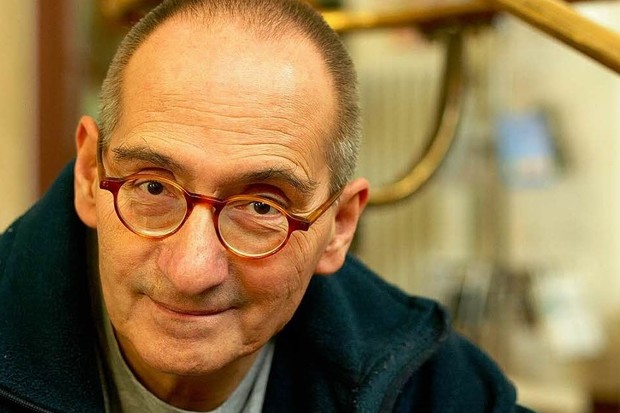Dominik Graf • Director
“The stories I like to tell are not in high demand in cinema”
- With Beloved Sisters, the German director is momentarily distancing himself from television

Even if he is considered one of German cinema’s biggest names, Dominik Graf has never been very present in cinemas, having made less than a dozen films for the big screen. Although he works prolifically in television, his efforts to introduce Germany to genre cinema in the 1980s and 1990s were well received. His latest big screen effort, historical film Beloved Sisters [+see also:
film review
trailer
interview: Dominik Graf
film profile], is in the running for a Golden Bear at the 64th edition of the Berlin International Film Festival. Graf was inspired by letters by writer Friederich Schiller to his sisters Charlotte and Caroline von Lengefeld, with whom he had a particular love triangle. The pre-French revolution world is depicted through these three characters who hold revolutionary ideas when it comes to love and economic power.
Cineuropa: Despite its historical aspect, the film is very modern. You seem to remind us, through your characters, that we need to fight for the rights we acquired in the past, but then lost.
Dominik Graf: In the film, there are parallels between that given historical moment and the last few decades. What happened during the French revolution, between 1782 and 1789 ended up being a real disappointment for society. Germany in 1968 was in a similar situation, the moment then led to altogether different results, defining the lives of people within a whole generation.
Last year, the Rotterdam International Film Festival dedicated a retrospective on you, describing you as “German cinema’s secret weapon.” Do you identify with this statement?
In a certain sense, there may be some truth to it. My television work has been very well received. Working through this medium often means remaining hidden. But the stories I like to tell are rarely in demand within the world of cinema.
In Rotterdam, there was some demand for you to be more present in international film festivals.
This is a situation that suits me well. I consider myself quite provincial, which is probably why my films rarely get picked up by international film festivals. I write stories about the people around me and I do not want to change or have to start filming in English. Working in a foreign language would be extremely hard for me, and I like small-scale projects. I don’t like for my projects’ quality to rely on the amount of money that has been raised. Obviously, every now and then I need an explosion and it is good for my work to be exposed at higher levels, like right now, in Berlin.
With Die Katze (1988), you managed to make a detective story a great success in German cinemas. Why did the genre not stick in Germany do you think?
It is simply a financial question. I tried to repeat the same formula a few years later with Die Sieger, which cost much more, and I was not able to. Despite the great success of Die Katze, those who financed the film were always rather sceptical about the genre. This is why we had to film with half the budget we actually needed.
(Translated from Spanish)
Did you enjoy reading this article? Please subscribe to our newsletter to receive more stories like this directly in your inbox.
















